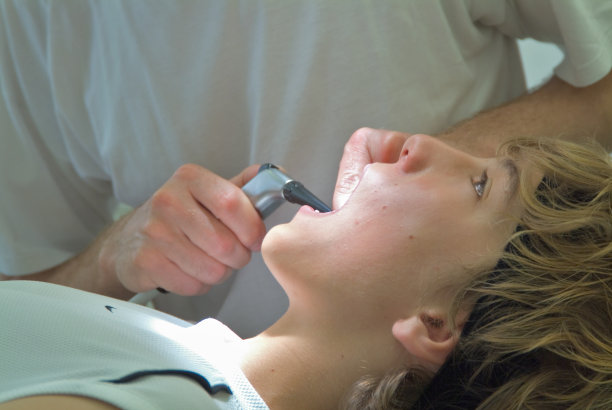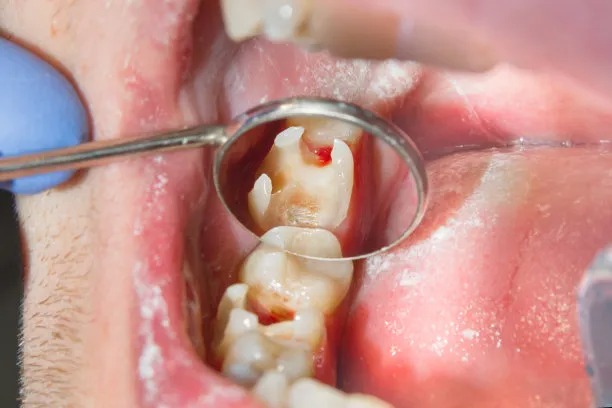Summary: Dental fillings are essential in restoring the function and integrity of a tooth damaged by decay or fracture. However, to achieve optimal results, patients must be well-informed about several precautions associated with the procedure. This article outlines four key areas: the importance of communicating effectively with dental professionals, understanding preparation protocols prior to the filling procedure, knowing aftercare practices for maintaining oral health, and recognizing potential complications. By adhering to these precautions, patients can ensure a smooth experience and better outcomes, safeguarding their oral health and preventing future dental issues.
1. Communicating Effectively With Your Dentist

Clear communication with your dentist is paramount before undergoing a dental filling procedure. Patients should openly discuss their health history, including current medications and any allergies. Such information can significantly impact the materials used and the methods employed during the procedure.
Additionally, expressing any concerns about the procedure can help the dentist tailor their approach to the patients comfort level. Whether the patient has anxiety about dental treatments or questions about the filling process itself, understanding what to expect reduces pre-procedure stress.
Finally, don’t hesitate to ask about the various filling materials available. Understanding the benefits and drawbacks of each type can help you make an informed decision that best suits your needs and preferences.
2. Preparing for the Dental Filling Procedure
Preparation for a dental filling begins with adhering to dietary restrictions. Your dentist may recommend avoiding certain foods and beverages before the appointment, particularly if anesthesia is involved. This minimizes the risk of discomfort during and after the procedure.
It’s also wise to arrange transportation if you receive sedation, as you may feel disoriented or groggy afterward. Having a friend or family member available for support decreases stress and helps ensure an easier transition back home.
Practicing good oral hygiene in the days leading up to the appointment can also make a significant difference. Regular brushing and flossing help maintain a clean environment, allowing your dentist to concentrate on the filling work without additional complications from existing plaque or debris.
3. Aftercare Practices for Oral Health Maintenance
After receiving a dental filling, patients should adhere to specific aftercare procedures to promote healing and avoid complications. Initially, it’s essential to avoid chewing on the side where the filling was placed until the anesthesia has completely worn off. This prevents accidental biting of the cheek or tongue.
Maintaining an easy-to-manage diet for the first 24 hours is also advised. Soft foods can minimize irritation and allow the treated area to heal without undue stress from harder items. Hydration remains crucial, but it’s advisable to steer clear of extremely hot or cold beverages during this time.
Regular follow-ups with your dentist are necessary as well. This removes doubts about the integrity of the filling and allows for early detection of any issues or complications should they arise. Staying proactive contributes to longer-lasting dental health.
4. Recognizing Potential Complications and When to Seek Help
After a dental filling procedure, patients should remain vigilant for any signs of complications. Sensitivity to temperature changes can be normal initially; however, prolonged discomfort may indicate issues such as an improperly fitted filling or underlying problems that haven’t been addressed.
Additionally, watch for signs of infection, such as swelling, fever, or persistent pain. These symptoms warrant immediate attention, as untreated infections can lead to more severe complications or systemic health concerns.
Finally, maintaining regular dental check-ups allows your dentist to monitor the condition of your fillings and oral health more broadly. Consistency in these visits is critical to ensuring any emerging problems can be dealt with effectively and promptly.
Summary:
By understanding the essential precautions before and after dental filling procedures, patients can significantly enhance their oral health outcomes. Open communication with dentist professionals, proper preparation for the procedure, diligent aftercare, and awareness of potential complications are all vital elements in a successful dental experience.
This article is compiled by Vickong Dental and the content is for reference only.
Vickong Dental
Vickong Dental is a large medical group established in Hong Kong in 2008 by professors from well-known medical universities in Guangdong and Hong Kong, as well as medical doctors from key national '985' universities (including Master's supervisors and senior professors). The chain of branches brings together expert dentists with PhDs and Master's degrees from Hong Kong and Mainland China, committed to providing high-quality dental treatment.
"Vickong Dental Practices the University Motto of 'Healing and Serving Society,' with a Stable Operation for Sixteen Years. It Has Been honored with Hong Kong Enterprise Leaders's Choice,' and is a Global Trusted Implant Center for the Nobel Implant System. Recommended by Hong Kong Metro Broadcast and Guangdong Television, it Serves Customers from Over Thirty Countries and Regions, Gaining the Trust and Favor of Citizens from the Guangdong-Hong Kong-Macau Greater Bay Area and Surrounding Cities.

Thousands of customers' unanimous praise
The most recognized and highly recommended dental service by customers in the Guangdong-Hong Kong-Macau Greater Bay Area
We Ensure You Receive Detailed Care and Attention Here
Hong Kong standards, Shenzhen prices, Your Trusted English-speaking dentists

Vickong Dental Medical-Grade Instrument Disinfection Process
Vickong Dental Medical-Grade Instrument Disinfection Process

Vickong Dental Chain: A Warm and Comfortable Environment for Treatment






Appointment Hours

Q&A
Why choose Vickong Dental?
Vickong Dental practices the university motto 「Medicine to Benefit Society」, with each branch bringing together highly qualified dentists with doctoral and master’s degrees from Hong Kong and the Mainland, and has maintained seventeen years of steady operation。Recipient of 「2024 Hong Kong Enterprise Leaders Brand」, 「2025 Hong Kong Enterprise Leaders Brand」, a Nobel Biocare Global Trusted Implant Center, and a brand recommended by Metro Radio Hong Kong and Guangdong TV。
To date, we have served customers from more than thirty countries and regions,earning exceptionally high word-of-mouth recognition and trusted recommendations from residents across the Guangdong-Hong Kong-Macao Greater Bay Area and surrounding cities
We have eight major branches in Zhuhai、Shenzhen,and a consultation and service assurance center in Hong Kong,so you can book a free consultation at any time for any questions,which is very reassuring.
If I do not accept the quotation after the CT scan, will I be charged??
No! As long as the actual treatment has not started, you will not be charged any fees.
Will there be any additional charges during the treatment process?
No, there won’t be any additional charges. Before treatment begins, we will clearly explain the treatment plan and its corresponding fees. Only after the patient agrees and signs the consent form will we proceed with the dental service.
Can I pay in Hong Kong dollars?
Yes. Vickong Dental accepts payment in Hong Kong dollars. The amount will be converted based on the exchange rate of the day, and the applicable rate will be clearly communicated to you in advance.
Can I reschedule my appointment at any time?
Yes. Please contact us via **WeChat** or **WhatsApp** as early as possible, providing your original appointment time and details, along with your preferred new date and time slot for rescheduling.













